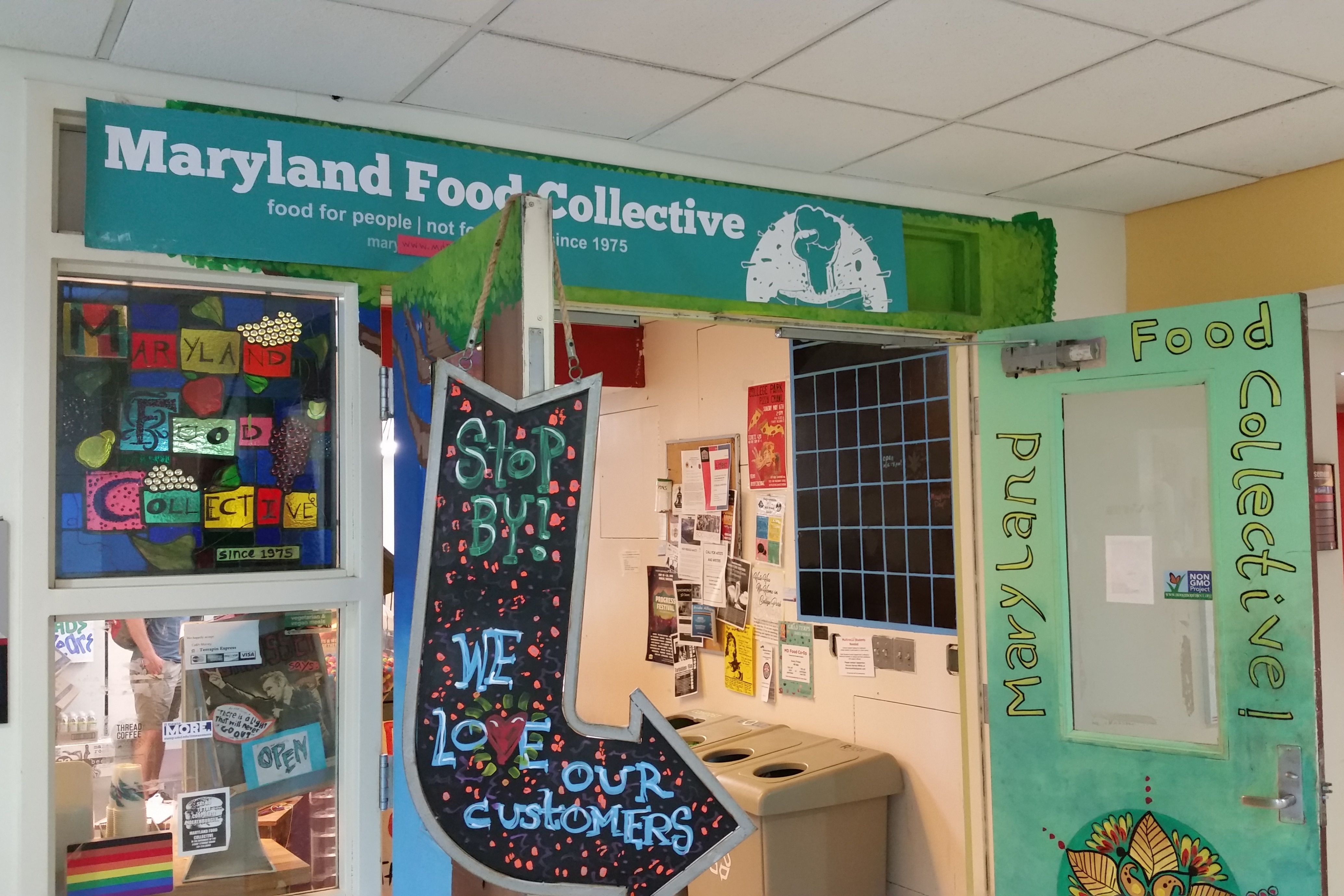Stock up on gluten-free vegan sandwiches while you can — the Maryland Food Co-op is set to close at the end of the spring semester.
In a statement addressed to the university community, Stamp Student Union director Marsha Guenzler-Stevens said that despite working with Dining Services and the nonprofit Baltimore Roundtable for Economic Democracy, the Co-op will close in May after more than 40 years of business, because it is operating under an ever-increasing amount of debt.
“This decision was difficult for everyone involved,” Guenzler-Stevens wrote, “and only made after many meetings and discussions between the STAMP and representatives from the Food Co-op.”
The Co-op has provided vegan and vegetarian fare and bulk food items to this university for more than four decades. But problems with marketing, student turnover and increased competition from other food providers drove the Co-op deeper in debt, despite its best efforts to reverse the trend.
“We were expecting it,” said Toby Woods, a worker at the Co-op. “[Stamp] did give us warning. They were telling us that if our numbers weren’t up that they were gonna shut us down.”
[Read more: The 41-year-old Maryland Co-op is in danger, and it’s started a fundraiser to stay afloat]
Another Co-op worker, skog, said the announcement was “very disheartening to everyone involved.”
Last summer, the Co-op underwent internal restructuring with the hope of slowly paying off the debt, according to Woods, but it wasn’t enough.
“For a long time we just accumulated debt,” said Sarah Eppley, an alumna who has worked at the Co-op for more than three years.
Eppley described the Co-op’s financial woes as largely the result of the high turnover rate that comes with running a business on a college campus. She said the debt wouldn’t be as bad if management skills like bookkeeping weren’t lost every four years.
[Read more: After raising more than $9,000, the Maryland Co-op is back — with mac ‘n cheese]
Competition from other food vendors in the student union hasn’t helped. The bustling food court located a floor above the Co-op features fast food options such as Panda Express and Chick-fil-a. These eateries can meet students’ needs for on-demand food, something the Co-op cannot compete with.
Workers noted that the Co-op’s non-competition clause prevents them from serving food too similar to fare in the food court, such as pizza and fries.
“We get a decent amount of students, but it’s nothing compared to the student traffic that used to be coming through here,” said Skoglund, a junior environmental science and policy major. “It used to be much more popular, much more known about, and you’d have lines out the door.”
Co-op members recently formed Solidarity Co-op, an initiative to raise money to help pay the debt. Students and community members can join by paying $10 per month. In return, they receive special discounts, and eventually they’ll be able to buy bulk, sustainable groceries. Woods said about 30 students have already joined.
“We’re in this troubling situation,” Skoglund said. “We need the community to help support us.”
Faced with a mountain of inherited debt, some workers already seem resigned to the Co-op’s fate.
“I hate to say it, but I don’t think we have a chance at all,” said Woods, a freshman psychology major. But she added, “We’re still going to try.”
In the week since the announcement, Eppley said the Co-op has received a wave of support from customers.
“It definitely seems like people are very eager to help out,” she said.
Some students who regularly eat at the Co-op were unaware of the closing and expressed disappointment.
Victoria Cepeda Espinoza, a computer science doctoral student, said the Co-op is one of the only places on campus that provides vegan options.
If the Co-op does close, Espinoza said she “probably wouldn’t come back to Stamp again.”
Plans are underway to “commemorate the Maryland Food Collective’s presence, history, and contributions in the Stamp,” according to Guenzler-Stevens’ statement, though it is unclear what form that will take.
“We really need something anti-capitalist on this campus,” Eppley said.
CORRECTION: Due to a reporting error, a previous version of this article listed Max Skoglund as a sophomore. He is a junior. This story has been updated.



